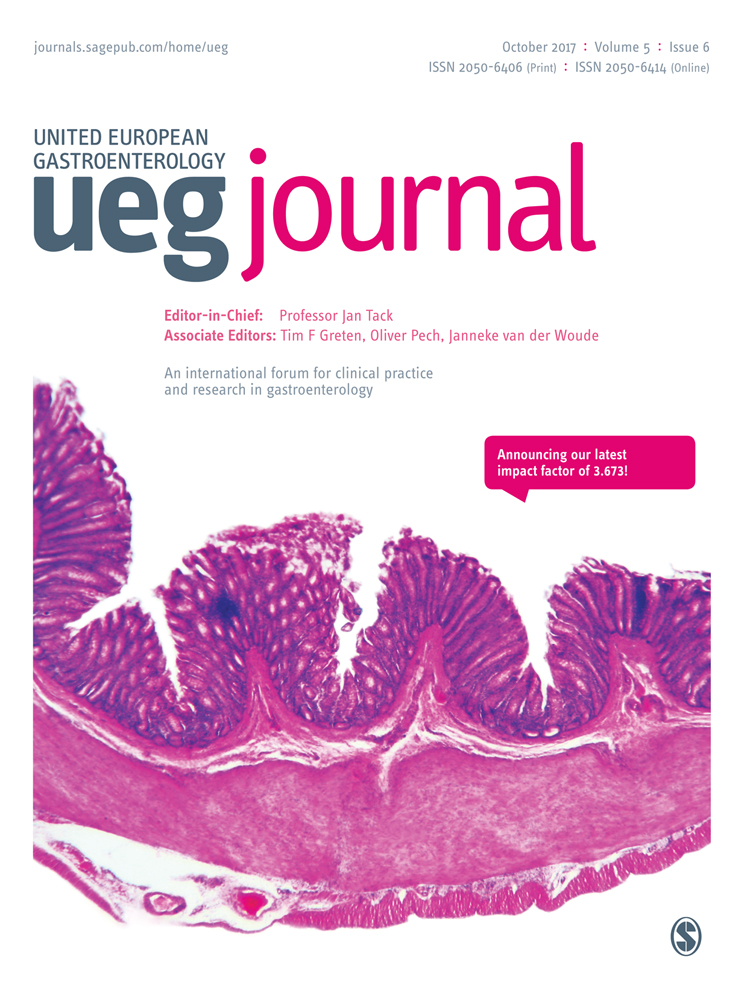UEG Week 2018 Vienna: Topics and highlights
United European Gastroenterology (UEG) Week reflects one of the world leading meetings in the field of gastroenterology and hepatology and will take place 20–24 October 2018 in Vienna. This meeting aims to bring together clinicians and basic scientists from all over the world to discuss and debate progress in gastrointestinal disorders. Excellent international speakers and scientists will present state-of-the art knowledge from many areas of our field.
Post-Graduate Teaching Programme (PGT)
The PGT course has improved over the years and evolved as very attractive for attendees. Success has been mainly because of the introduction of a three-year rotation programme which was started in 2014. In 2017, we started our “second term” with an adapted programme. This course allows clinicians participating regularly at UEG Week to receive a continuous state-of-the-art update of the most relevant gastrointestinal disorders from leading clinical authorities. Quality has also been improved in recent years by having a lead discussant in most sessions to boost interaction between attendants and speakers.
Case-based symposia
The previously called “round tables” are now organised as case-based symposia to focus on problem-solving of challenging clinical issues. These sessions will cover many different areas of gastroenterology and hepatology, allow intense discussion and exchange and will be dominantly clinically based. This format should be highly attractive for clinicians and especially young gastroenterologists.
Symposia
Interdisciplinary symposia will bring together physicians from different fields including gastroenterology, pathology, radiology and surgery discussing the current management of gastrointestinal and hepatic disorders. We plan especially to address topics in the field of gastrointestinal cancer, the rapidly evolving field of intestinal microbiota and nutrition. Another important format is covered by “From guidelines to clinical practice,” which will discuss the use and value of clinical guidelines and how they might affect clinical practice. UEG Week intends to improve patient management all over Europe and this is also supported by National Societies symposia which will deal with the most common entities in our field.
Crash courses
One new format launched in 2018 is called crash courses. In these very focussed sessions we want to cover a clinical topic, e.g. perianal Crohn’s disease, to allow attendants to receive a perfect overview from various angles in a clinically highly relevant area. In these courses, we will focus in the future on highly relevant practical issues. We are convinced that this new format will further help to strengthen the quality of our meeting.
Today’s science – Tomorrow’s medicine (TSTM)
This programme part has been highly successful in past years and is a contribution to the increasing number of basic scientists attending UEG Week. The planned TSTM topic in 2018 is “Regenerative Medicine in GI Disorders”. This thrilling topic with major advances especially in basic science might become of major relevance in gastroenterology and hepatology in the near future. UEG Week’s TSTM series will continue to enforce the so-important dialogue between basic scientists and clinicians to ultimately support at clinical innovation.
Abstracts
The poster area is the “heart” of UEG Week and we encourage researchers to submit their best work to our meeting and thereby contribute to its success. It is not only the format by which the best research is presented, but also allows all delegates to interact within the GI community. Several recent changes of the format such as Posterchamp Sessions and Posters in the Spotlight have proven highly successful and allow in-depth interactions among scientists.
One strength of our meeting has been the increasing attendance of highly motivated and talented young delegates. We believe that several initiatives from the past years such as Young GI Network, Young GI Track and Young GI Lounge have contributed to this. UEG Week aims to become a platform for as many young GI clinicians and scientists as possible. We will close our meeting with the highly attractive lecture series entitled “What’s new in 2018?” We believe that attending next year’s UEG Week will be highly attractive both for basic scientists and clinicians from all over the world, and we are very happy to welcome you there!
26th UEG Week Vienna 2018
20–24 October 2018
ACV, Vienna, Austria
Online registration opens 22 January 2018
Abstract submission opens 22 January 2018
Find out more https://www.ueg.eu/week/ueg-week-2018




